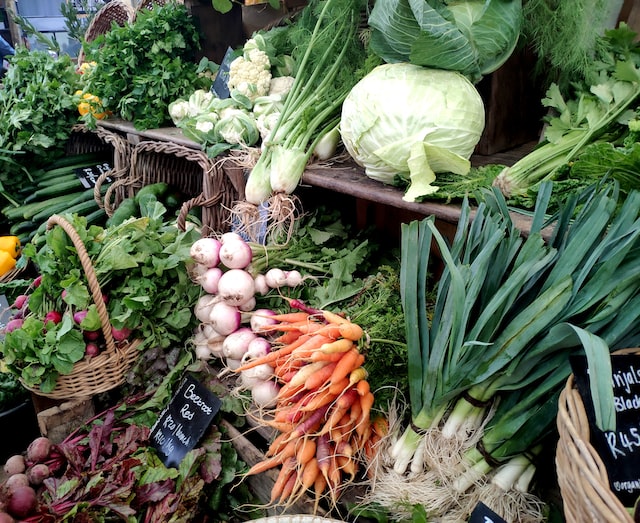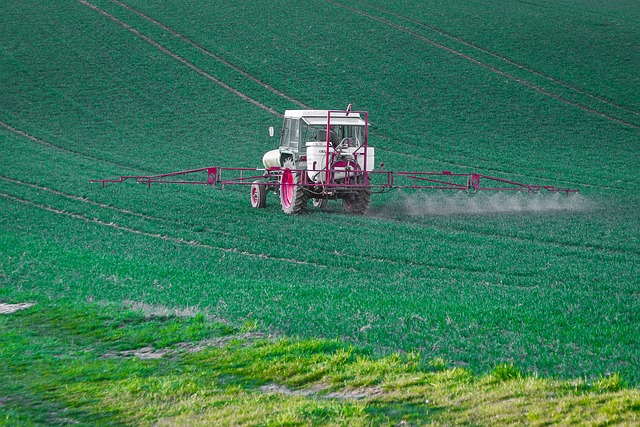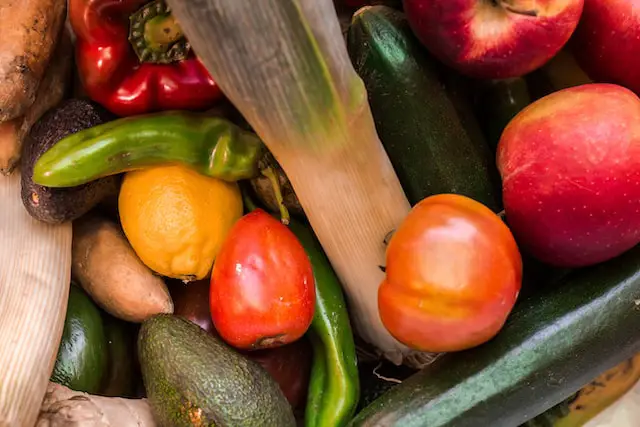Organic vegetables are grown without the use of chemical fertilizers or pesticides, resulting in higher nutrient levels and lower risk of contamination from harmful chemicals. Inorganic vegetables may contain lower levels of some nutrients than organic varieties but also pose a greater risk for exposure to toxic substances.
What are organic vegetables?
(Photo by FitNish Media on Unsplash )

Organic vegetables are those that are grown without the use of synthetic pesticides or fertilizers. In general, organic foods are also not processed with chemicals or other artificial agents. To be certified as organic, farmers must follow specific guidelines set by the government.
What are inorganic vegetables?

Inorganic vegetables are those that are not grown using organic methods. This means they may have been treated with synthetic pesticides, herbicides, and fertilizers. They may also be genetically modified (GMO). In contrast, organic vegetables are grown using only natural methods, without any synthetic chemicals.
The difference between organic and inorganic vegetables
Organic vegetables are those that are grown without the use of synthetic fertilizers, pesticides, or herbicides. Inorganic vegetables are those that are grown with the use of these synthetic chemicals.
There are a few key differences between organic and inorganic vegetables. First, organic vegetables are generally more expensive than inorganic vegetables. This is because organic farmers have to rely on more labor-intensive methods of production, such as using natural pest controls and hand-weeding. Second, organic vegetables tend to be more nutritious than inorganic vegetables. This is because they are grown in nutrient-rich soils and aren’t exposed to synthetic chemicals that can deplete their nutrient content. Third, organic vegetables have a lower risk of contamination from harmful chemicals and pathogens. This is because they aren’t exposed to the same amount of toxic chemicals as inorganic vegetables, and their farms are typically located away from sources of pollution.
Overall, organic vegetables are a better choice for your health and the environment. However, they may not be available year-round or be within your budget. When choosing between organic and inorganic vegetables, consider your needs and preferences to make the best decision for you and your family.
The benefits of organic vegetables
Organic vegetables are grown without the use of synthetic pesticides or fertilizers. This means they are better for the environment and your health. Organic farming practices also promote soil and water conservation.
Organic vegetables have been shown to contain more vitamins, minerals, and antioxidants than their conventionally-grown counterparts. They also tend to have a better flavor since they are allowed to ripen on the vine longer.
Which is better for you? Organic or Inorganic vegetables
Both organic and inorganic vegetables can be part of a healthy and balanced diet. However, there are some differences between the two types of vegetables that may influence your choice.
Organic vegetables are grown without synthetic pesticides, fertilizers, or genetically modified organisms (GMOs). They are also often grown using sustainable farming practices, such as crop rotation and composting. Some people prefer organic vegetables because they believe they are healthier and more environmentally friendly.
Inorganic vegetables, on the other hand, may be grown using synthetic pesticides, fertilizers, and GMOs. While some people may be concerned about the potential health and environmental risks associated with these substances, others argue that they are safe and necessary to produce enough food to feed a growing population.
Ultimately, the choice between organic and inorganic vegetables depends on your personal preferences and values. Both types can be part of a healthy and balanced diet, and it is important to wash all vegetables thoroughly before eating to remove any potential contaminants.
It’s also important to note that the most important thing when it comes to vegetables is to eat a variety of them, as they provide a range of essential vitamins, minerals, and other nutrients.
How are organic vegetables grown?
Organic vegetables are grown without the use of synthetic pesticides, herbicides, or fertilizers. They are also not genetically modified. To be certified organic, farmers must follow strict guidelines set by the United States Department of Agriculture (USDA).
The USDA’s National Organic Program (NOP) defines what substances can and cannot be used in organic production and handling. Synthetic pesticides and fertilizers are not allowed, although there are a few exceptions. Farmers can use some naturally derived pesticides, but they must show that these products are not harmful to human health or the environment.
Herbicides are generally not allowed in organic farming. Farmers must control weeds using physical methods such as tillage, mulching, and hand-weeding. Genetically modified crops are also not allowed.
Organic farmers strive to build healthy soils that can support plants without the need for synthetic inputs. They do this by using cover crops, compost, and other organic matter to improve soil health. Healthy soils help to reduce water pollution and erosion while also sequestering carbon dioxide from the atmosphere.
How are inorganic vegetables grown?
Inorganic vegetables are grown using synthetic pesticides, herbicides, and fertilizers. These chemicals can leach into the soil and water, and run off into rivers and streams. They can also be taken up by the plants themselves, ending up in your food.
The health benefits of organic vegetables
Organic vegetables can have potential health benefits compared to conventionally grown vegetables. Here are a few reasons why:
- Reduced pesticide exposure: Organic vegetables are grown without the use of synthetic pesticides, which can reduce exposure to harmful chemicals. While there is ongoing debate about the potential health risks of pesticide exposure, some studies have linked pesticide exposure to a range of health problems, including cancer, developmental delays, and neurological disorders.
- Higher nutrient content: Some studies suggest that organic vegetables may have higher nutrient content than conventionally grown vegetables. For example, a review of studies found that organic crops had higher levels of certain nutrients, including vitamin C, iron, and magnesium, than conventionally grown crops.
- Lower exposure to antibiotic-resistant bacteria: Organic vegetables are produced without the use of antibiotics, which can lead to lower levels of antibiotic-resistant bacteria. This is important because antibiotic-resistant bacteria can cause serious infections that are difficult to treat.
- Better for the environment: Organic farming practices can be better for the environment, which can have positive health implications for people. For example, organic farming practices can reduce soil erosion, protect water quality, and promote biodiversity.
While there are potential health benefits of organic vegetables, more research is needed to fully understand the effects of organic farming practices on human health. Additionally, organic vegetables may be more expensive than conventionally grown vegetables, which can make them less accessible to some people.
The health concerns of consuming inorganic vegetables
Consuming inorganic vegetables may raise some health concerns due to the use of synthetic pesticides and fertilizers in their production. Here are a few potential health concerns associated with consuming inorganic vegetables:
- Pesticide exposure: Inorganic vegetables are often treated with synthetic pesticides to protect them from pests and diseases. Exposure to pesticides has been linked to a range of health problems, including cancer, developmental delays, and neurological disorders.
- Antibiotic resistance: Inorganic vegetables may be produced using antibiotics, which can contribute to the development of antibiotic-resistant bacteria. This is a serious concern because antibiotic-resistant infections can be difficult to treat and can have serious health consequences.
- Reduced nutrient content: Some studies suggest that inorganic vegetables may have lower nutrient content than organic vegetables. For example, one study found that conventionally grown spinach had lower levels of vitamins C and E and other antioxidants compared to organic spinach.
- Environmental concerns: The use of synthetic pesticides and fertilizers in inorganic vegetable production can have negative environmental consequences, including water pollution, soil degradation, and harm to beneficial insects and other wildlife.
While these health concerns exist, it is generally considered safe to consume inorganic vegetables in moderation, as long as they are properly washed and prepared. However, people who are particularly concerned about pesticide exposure or antibiotic resistance may choose to purchase organic vegetables instead.
Featured Image By – Photo by Darío Méndez on Unsplash








